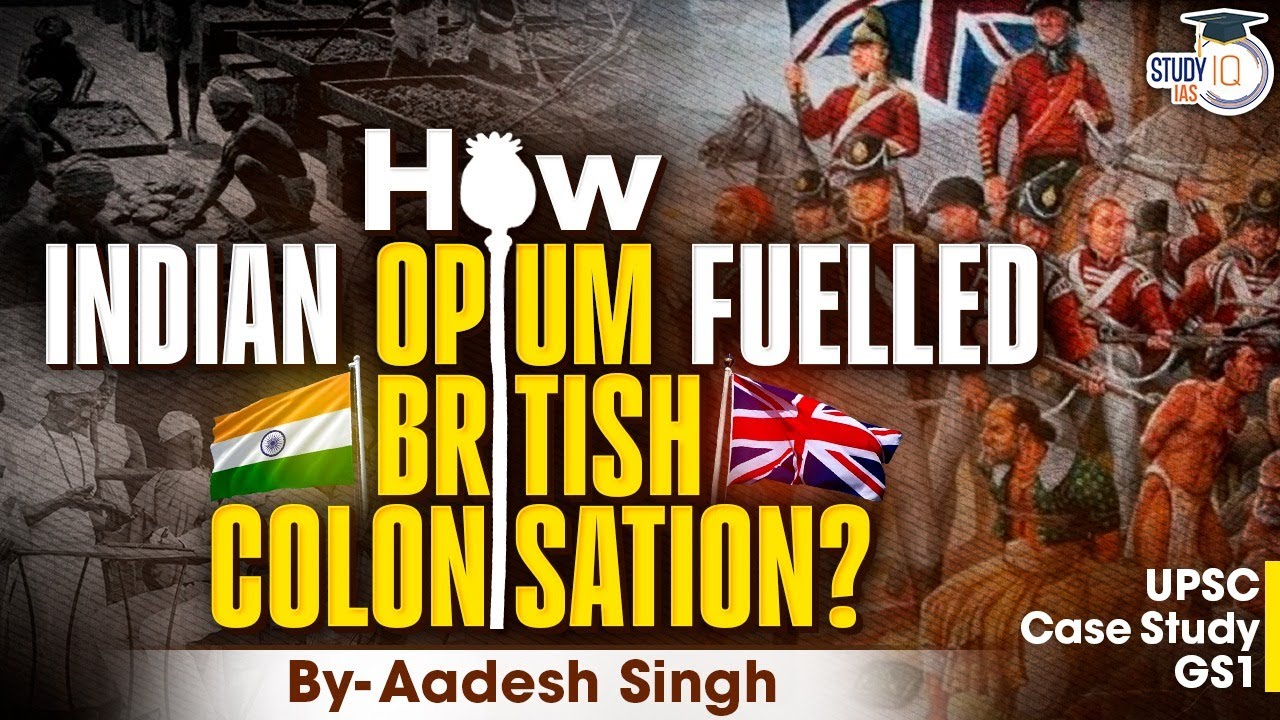Why Britain started the Opium War?
Summary
TLDRThe video examines the Opium War's origins, detailing Britain's illegal opium trade with China to balance trade deficits in the 19th century. As addiction spread, the Chinese government took action by destroying confiscated opium, leading to British military intervention. The conflict culminated in the Treaty of Nanking, which imposed significant concessions on China and marked a turning point in its history. This war not only humiliated the Qing dynasty but also initiated China's journey towards modernization and unity, highlighting the enduring impact of imperialism on its social and economic landscape.
Takeaways
- 📜 The Opium War began in 1840 due to Britain's opium trade with China, aimed at balancing trade deficits.
- 💊 Opium was highly restricted in Britain but was smuggled into China, leading to widespread addiction among the Chinese population.
- 📉 By 1839, over 12 million Chinese were addicted to opium, causing significant social and economic disruption in China.
- 🇬🇧 Britain's desire to open new markets post-Industrial Revolution led to increased opium sales to China.
- 🏮 The Qing government attempted to combat opium addiction by confiscating and destroying over 1,400 tons of the drug in 1839.
- ⚔️ The British viewed the Qing government's actions as an insult, leading to military intervention and the war.
- 🤝 The Treaty of Nanking, signed in 1842, ended the war and allowed Britain to continue opium trade in China.
- 🏙️ Hong Kong was ceded to Britain, and several treaty ports were opened to foreign trade following the war.
- 💰 China was required to pay reparations for destroyed opium, further straining its economy.
- 🌍 The Opium War marked a significant turning point in Chinese history, leading to increased foreign intervention and the eventual fall of the Qing dynasty.
Q & A
What were the primary reasons for the Opium War?
-The Opium War was primarily caused by Britain's desire to balance its trade deficit with China by selling opium, leading to social and economic disruption in China.
How did the British justify the opium trade?
-Britain branded opium as medicine for pain and insomnia, despite it being highly addictive and harmful.
What actions did the Qing government take against opium in 1839?
-In 1839, the Qing government confiscated and destroyed over 1,400 tons of opium and banned British opium merchants from mainland China.
What was the impact of opium addiction on Chinese society?
-Widespread opium addiction led to significant social and economic disruptions, weakening the workforce and draining financial resources.
What was the Treaty of Nanking?
-The Treaty of Nanking, signed in 1842, ended the Opium War and allowed Britain to continue trading opium in China, ceded Hong Kong to Britain, and opened several treaty ports.
How did the British respond to the Chinese ban on opium?
-The British viewed the ban as an insult to their dignity and pride, prompting them to send an expeditionary force to China to enforce trade.
What were the long-term consequences of the Opium War for China?
-The Opium War marked the beginning of modern Chinese history, leading to the division of China, further foreign invasions, and the eventual overthrow of the Qing dynasty in 1911.
What role did the East India Company play in the opium trade?
-The East India Company, a state-run business, facilitated the illegal smuggling of Indian opium into China to pay for British goods, especially tea.
What was the significance of opium sales to Britain's economy?
-Opium sales were crucial for Britain's economy, as they financed Britain's entire tea trade with China.
How did the Opium War affect China's international standing?
-China's defeat in the Opium War humiliated the Qing dynasty and diminished its prestige, showcasing China's vulnerability to foreign powers.
Outlines

Cette section est réservée aux utilisateurs payants. Améliorez votre compte pour accéder à cette section.
Améliorer maintenantMindmap

Cette section est réservée aux utilisateurs payants. Améliorez votre compte pour accéder à cette section.
Améliorer maintenantKeywords

Cette section est réservée aux utilisateurs payants. Améliorez votre compte pour accéder à cette section.
Améliorer maintenantHighlights

Cette section est réservée aux utilisateurs payants. Améliorez votre compte pour accéder à cette section.
Améliorer maintenantTranscripts

Cette section est réservée aux utilisateurs payants. Améliorez votre compte pour accéder à cette section.
Améliorer maintenantVoir Plus de Vidéos Connexes

Opium Wars: Great Britain vs China - Animated History

Imperialism: Crash Course World History #35

Feature History - First Opium War

E.H. Gombrich 'A Little History of World' 37. Across the Seas

How Indian Opium Shaped British Colonial Expansion Across the World | UPSC Mains GS 1

History Of Singapore 新加坡的歷史 Part 2 (Discovery Channel)
5.0 / 5 (0 votes)
